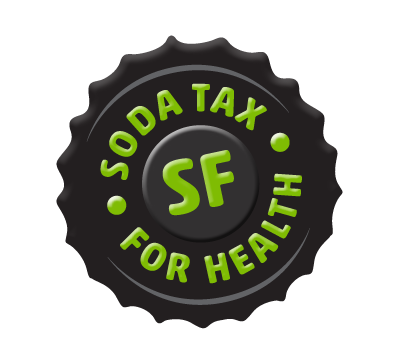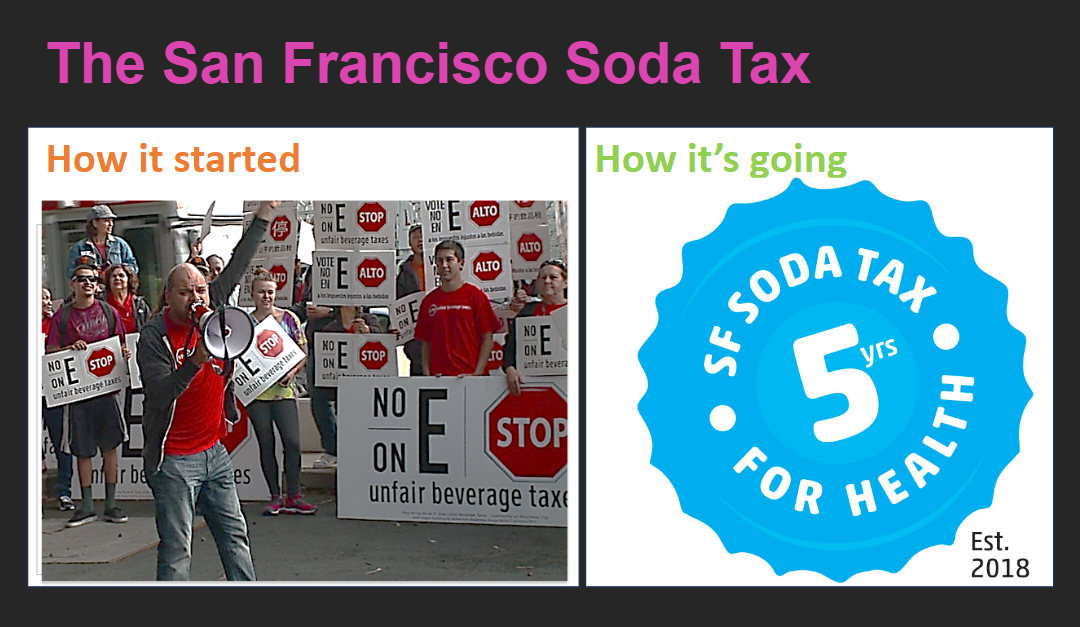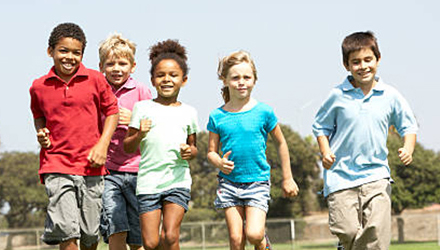By Christina Goette
It’s the time of year when we reflect back and look ahead. Daily, I strive to keep gratitude at the forefront, recognizing that we live in the midst of pain and suffering, both here in SF and across the globe. For me, it makes it even more important to seize those opportunities for which to be grateful. Seeing magic in a clear drop of rain resting on a leaf or feeling joy when a stranger smiles and scoots over so you can sit down after a long day… these are the little moments that sustain me. On another level, my heart expands when I look back at what we have accomplished together in 15 years. For me it started in 2006, when a small team in DPH, led by Dr. Mark Ghaly, California’s current Secretary of Health and Human Services, developed the first nexus study to ascertain the impact of sugary drinks on health. In the community, with the Bay Area Nutrition and Physical Activity Collaborative, Shape Up SF embarked on the first Bay Area Regional Soda Free Summer campaign in 2008 – our first public foray into the world of sugary drinks. In the intervening decade and a half, we worked together to take on the mighty sugary drink industry. But who is “we”? “We” is community based organizations, scientists, community organizers, health parity advocates, policy makers, community members, researchers, city departments, parents, health advocacy organizations, students, political consultants, PTAs… to name a smattering of those who bonded over the fight for health. “We” is us, united for health.
Last month, we celebrated FIVE YEARS of the SF Soda Tax. San Francisco is one of only four jurisdictions in California to successfully take on the industry and pass a fee, so we celebrated! The Department of Public Health’s Healthy Eating Active Living team led a series of events to mark the occasion: Marianne Szeto led the overall effort and partnered with Blythe Young at the American Heart Association and co-lead of Shape Up SF’s Policy, Systems, Environments Action Team (PSEAT) on the policy panel. Kim Wong organized the kick off event with the Florence Fang Community Farm and many of our soda tax funded partners. Melinda Martin convened the Medical Grand Rounds at Zuckerberg General Hospital with Dr. Dean Schillenger and team. Avi Rose orchestrated our school-based event with our SFUSD partners, Urban Sprouts, and June Jordan School for Equity. I am immensely grateful for this incredible team: dedicated, collaborative and SO MUCH FUN to work with. And I want to extend my deep gratitude to all who organized and participated last month and over the past couple of decades. It may be cliched, but it’s definitely true: Teamwork makes the dream work!
Keep reading the blog this week to get the highlights of these beautifully orchestrated events celebrating our success as a community committed to health equity. The HEAL Team will post a new blog post each day!
Click below to read the posts:
“Bringing together community in celebration: five years of soda tax success” by Kim Wong
“Results of a community-public health-academic partnership” by Melinda Martin
“Policy panelists speak from the heart about the power of community” by Marianne Szeto



